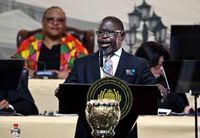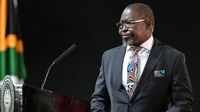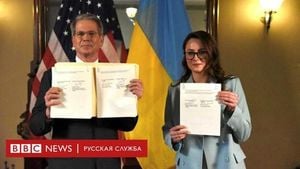In a move that has sparked significant debate and concern among South African consumers, Finance Minister Enoch Godongwana has confirmed a Value Added Tax (VAT) increase set to take effect on May 1, 2025. This decision comes amidst rising tensions within the Government of National Unity (GNU) and legal challenges from opposition parties.
The VAT will rise by 0.5 percentage points, bringing the rate to 15.5%. A second increase of another 0.5 percentage points is scheduled for April 1, 2026. Godongwana emphasized that failing to implement this increase could lead to severe consequences for state finances, stating, "Government would be immediately forced either to cut expenditure or increase borrowing." He argued that the VAT is a broad-based and efficient revenue source, and South Africa's rate remains relatively low compared to other countries.
The announcement follows a court action initiated by the Economic Freedom Fighters (EFF) and the Democratic Alliance (DA), both of which are seeking to block the tax hike. In his affidavit, Godongwana defended the legality of the increase, asserting that the relief sought by the DA and EFF lacks merit. He urged the court to reject their request for an interdict, emphasizing that the balance of convenience favors the dismissal of their claims, given the public interest at stake.
"They have failed to demonstrate that the balance of convenience favors the grant of the interdict sought," Godongwana stated. The DA's challenge is rooted in claims that the parliamentary process to adopt the 2025 fiscal framework was flawed, citing insufficient consultation and a rushed timeline that undermined democratic principles.
The DA's legal challenge is scheduled to be heard in the Western High Court on April 22, 2025, with the party asserting that the VAT hike must be temporary and contingent on significant economic reforms. The DA's spokesperson, Karabo Khakhau, reiterated their commitment to contesting the increase, stating, "We are fighting to overturn Parliament’s unlawful budget process and challenge the Minister’s power to hike VAT without proper oversight."
As tensions rise, the VAT increase has become a focal point of contention within the GNU, which includes the ANC and the DA. The FW de Klerk Foundation has advised the DA to remain within the coalition, even as discussions about the party's position continue. The DA's leadership met to address the fallout from the budget, economic reforms, and the implications of the VAT increase.
Godongwana's decision to increase VAT is seen as a necessary step to address South Africa's growing debt and to fund essential programs, including the Social Relief of Distress (SRD) grant, which supports millions of vulnerable citizens. However, consumer groups warn that the tax hike will exacerbate the cost-of-living crisis, particularly for low-income households already struggling with rising food and fuel prices.
The political landscape surrounding the VAT increase is complex. After the ANC lost its majority in the 2024 elections, it formed a fragile alliance with the DA and other smaller parties. Disputes over policies such as the VAT hike and land reform have raised questions about the coalition's ability to govern effectively. Godongwana, in his defense of the VAT increase, stated, "If I had alternatives to the 0.5%, I would be second guessing my fiscal framework." He reiterated that the decision was made after careful consideration of the potential contributions of various tax instruments.
Despite the controversy, Godongwana remains firm in his stance, arguing that the VAT increase is essential for stabilizing the country's finances. He pointed out that the DA's interpretation of the VAT Act is flawed and that the legal structure allows him to implement changes first, with Parliament deciding later whether to confirm or reject them.
The implications of the VAT increase extend beyond immediate fiscal concerns. Should the DA succeed in its legal challenge, it could lead to significant budgetary shortfalls, with estimates suggesting a potential R13.5 billion ($716 million) gap. This could force the government to make painful cuts to essential services or resort to increased borrowing.
Meanwhile, retailers are already adjusting prices in anticipation of the VAT hike, creating a sense of urgency among consumers. Public opinion on the increase is divided, with some experts advocating for the necessity of the hike to address the country’s fiscal issues, while others caution that it could worsen the financial strain on households.
As the court date approaches, the outcome of the legal challenge remains uncertain, and the political ramifications could be profound. The DA's internal divisions regarding whether to remain in the GNU could further complicate the situation, with some members advocating for a withdrawal from the coalition.
In summary, the VAT increase set to be implemented in May 2025 is not just a financial decision but a pivotal moment in South Africa's political landscape. With legal battles unfolding and public sentiment shifting, the stakes are high for both the government and the opposition.






